Fleurs du Mal Magazine


Or see the index
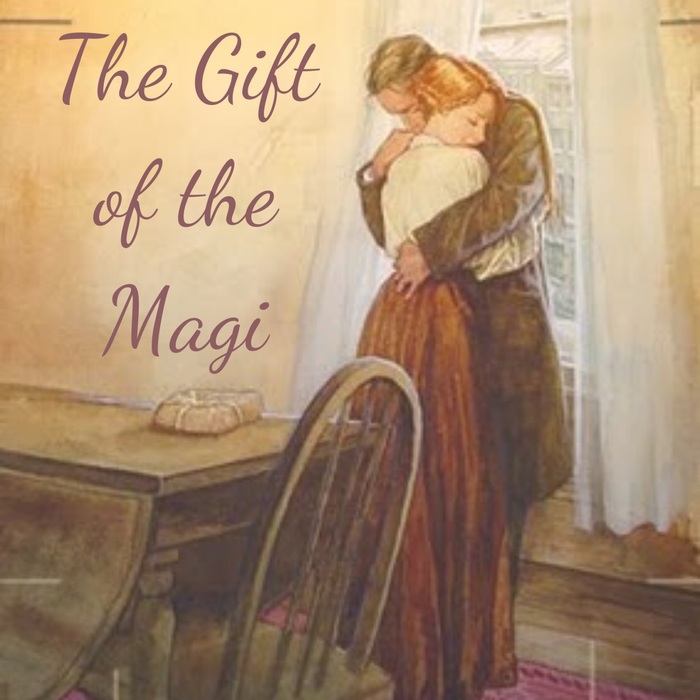
O. Henry (William Sydney Porter):
The Gift of the Magi
A Christmas story
One dollar and eighty-seven cents. That was all. And sixty cents of it was in pennies. Pennies saved one and two at a time by bulldozing the grocer and the vegetable man and the butcher until one’s cheeks burned with the silent imputation of parsimony that such close dealing implied. Three times Della counted it. One dollar and eighty-seven cents. And the next day would be Christmas.
There was clearly nothing left to do but flop down on the shabby little couch and howl. So Della did it. Which instigates the moral reflection that life is made up of sobs, sniffles, and smiles, with sniffles predominating.
While the mistress of the home is gradually subsiding from the first stage to the second, take a look at the home. A furnished flat at $8 per week. It did not exactly beggar description, but it certainly had that word on the look-out for the mendicancy squad.
In the vestibule below was a letter-box into which no letter would go, and an electric button from which no mortal finger could coax a ring. Also appertaining thereunto was a card bearing the name “Mr. James Dillingham Young.”
The “Dillingham” had been flung to the breeze during a former period of prosperity when its possessor was being paid $30 per week. Now, when the income was shrunk to $20, the letters of “Dillingham” looked blurred, as though they were thinking seriously of contracting to a modest and unassuming D. But whenever Mr. James Dillingham Young came home and reached his flat above he was called “Jim” and greatly hugged by Mrs. James Dillingham Young, already introduced to you as Della. Which is all very good.
Della finished her cry and attended to her cheeks with the powder rag. She stood by the window and looked out dully at a grey cat walking a grey fence in a grey backyard. To-morrow would be Christmas Day, and she had only $1.87 with which to buy Jim a present. She had been saving every penny she could for months, with this result. Twenty dollars a week doesn’t go far. Expenses had been greater than she had calculated. They always are. Only $1.87 to buy a present for Jim. Her Jim. Many a happy hour she had spent planning for something nice for him. Something fine and rare and sterling–something just a little bit near to being worthy of the honour of being owned by Jim.
There was a pier-glass between the windows of the room. Perhaps you have seen a pier-glass in an $8 Bat. A very thin and very agile person may, by observing his reflection in a rapid sequence of longitudinal strips, obtain a fairly accurate conception of his looks. Della, being slender, had mastered the art.
Suddenly she whirled from the window and stood before the glass. Her eyes were shining brilliantly, but her face had lost its colour within twenty seconds. Rapidly she pulled down her hair and let it fall to its full length.
Now, there were two possessions of the James Dillingham Youngs in which they both took a mighty pride. One was Jim’s gold watch that had been his father’s and his grandfather’s. The other was Della’s hair. Had the Queen of Sheba lived in the flat across the airshaft, Della would have let her hair hang out of the window some day to dry just to depreciate Her Majesty’s jewels and gifts. Had King Solomon been the janitor, with all his treasures piled up in the basement, Jim would have pulled out his watch every time he passed, just to see him pluck at his beard from envy.
So now Della’s beautiful hair fell about her, rippling and shining like a cascade of brown waters. It reached below her knee and made itself almost a garment for her. And then she did it up again nervously and quickly. Once she faltered for a minute and stood still while a tear or two splashed on the worn red carpet.
On went her old brown jacket; on went her old brown hat. With a whirl of skirts and with the brilliant sparkle still in her eyes, she cluttered out of the door and down the stairs to the street.
Where she stopped the sign read: “Mme Sofronie. Hair Goods of All Kinds.” One Eight up Della ran, and collected herself, panting. Madame, large, too white, chilly, hardly looked the “Sofronie.”
“Will you buy my hair?” asked Della.
“I buy hair,” said Madame. “Take yer hat off and let’s have a sight at the looks of it.”
Down rippled the brown cascade.
“Twenty dollars,” said Madame, lifting the mass with a practised hand.
“Give it to me quick” said Della.
Oh, and the next two hours tripped by on rosy wings. Forget the hashed metaphor. She was ransacking the stores for Jim’s present.
She found it at last. It surely had been made for Jim and no one else. There was no other like it in any of the stores, and she had turned all of them inside out. It was a platinum fob chain simple and chaste in design, properly proclaiming its value by substance alone and not by meretricious ornamentation–as all good things should do. It was even worthy of The Watch. As soon as she saw it she knew that it must be Jim’s. It was like him. Quietness and value–the description applied to both. Twenty-one dollars they took from her for it, and she hurried home with the 78 cents. With that chain on his watch Jim might be properly anxious about the time in any company. Grand as the watch was, he sometimes looked at it on the sly on account of the old leather strap that he used in place of a chain.
When Della reached home her intoxication gave way a little to prudence and reason. She got out her curling irons and lighted the gas and went to work repairing the ravages made by generosity added to love. Which is always a tremendous task dear friends–a mammoth task.
Within forty minutes her head was covered with tiny, close-lying curls that made her look wonderfully like a truant schoolboy. She looked at her reflection in the mirror long, carefully, and critically.
“If Jim doesn’t kill me,” she said to herself, “before he takes a second look at me, he’ll say I look like a Coney Island chorus girl. But what could I do–oh! what could I do with a dollar and eighty-seven cents?”
At 7 o’clock the coffee was made and the frying-pan was on the back of the stove hot and ready to cook the chops.
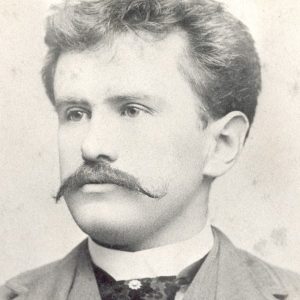
Jim was never late. Della doubled the fob chain in her hand and sat on the corner of the table near the door that he always entered. Then she heard his step on the stair away down on the first flight, and she turned white for just a moment. She had a habit of saying little silent prayers about the simplest everyday things, and now she whispered: “Please, God, make him think I am still pretty.”
The door opened and Jim stepped in and closed it. He looked thin and very serious. Poor fellow, he was only twenty-two–and to be burdened with a family! He needed a new overcoat and he was with out gloves.
Jim stepped inside the door, as immovable as a setter at the scent of quail. His eyes were fixed upon Della, and there was an expression in them that she could not read, and it terrified her. It was not anger, nor surprise, nor disapproval, nor horror, nor any of the sentiments that she had been prepared for. He simply stared at her fixedly with that peculiar expression on his face.
Della wriggled off the table and went for him.
“Jim, darling,” she cried, “don’t look at me that way. I had my hair cut off and sold it because I couldn’t have lived through Christmas without giving you a present. It’ll grow out again–you won’t mind, will you? I just had to do it. My hair grows awfully fast. Say ‘Merry Christmas!’ Jim, and let’s be happy. You don’t know what a nice-what a beautiful, nice gift I’ve got for you.”
“You’ve cut off your hair?” asked Jim, laboriously, as if he had not arrived at that patent fact yet, even after the hardest mental labour.
“Cut it off and sold it,” said Della. “Don’t you like me just as well, anyhow? I’m me without my hair, ain’t I?”
Jim looked about the room curiously.
“You say your hair is gone?” he said, with an air almost of idiocy.
“You needn’t look for it,” said Della. “It’s sold, I tell you–sold and gone, too. It’s Christmas Eve, boy. Be good to me, for it went for you. Maybe the hairs of my head were numbered,” she went on with a sudden serious sweetness, “but nobody could ever count my love for you. Shall I put the chops on, Jim?”
Out of his trance Jim seemed quickly to wake. He enfolded his Della. For ten seconds let us regard with discreet scrutiny some inconsequential object in the other direction. Eight dollars a week or a million a year–what is the difference? A mathematician or a wit would give you the wrong answer. The magi brought valuable gifts, but that was not among them. This dark assertion will be illuminated later on.
Jim drew a package from his overcoat pocket and threw it upon the table.
“Don’t make any mistake, Dell,” he said, “about me. I don’t think there’s anything in the way of a haircut or a shave or a shampoo that could make me like my girl any less. But if you’ll unwrap that package you may see why you had me going a while at first.”
White fingers and nimble tore at the string and paper. And then an ecstatic scream of joy; and then, alas! a quick feminine change to hysterical tears and wails, necessitating the immediate employment of all the comforting powers of the lord of the flat.
For there lay The Combs–the set of combs, side and back, that Della had worshipped for long in a Broadway window. Beautiful combs, pure tortoise-shell, with jewelled rims–just the shade to wear in the beautiful vanished hair. They were expensive combs, she knew, and her heart had simply craved and yearned over them without the least hope of possession. And now, they were hers, but the tresses that should have adorned the coveted adornments were gone.
But she hugged them to her bosom, and at length she was able to look up with dim eyes and a smile and say: “My hair grows so fast, Jim!”
And then Della leaped up like a little singed cat and cried, “Oh, oh!”
Jim had not yet seen his beautiful present. She held it out to him eagerly upon her open palm. The dull precious metal seemed to flash with a reflection of her bright and ardent spirit.
“Isn’t it a dandy, Jim? I hunted all over town to find it. You’ll have to look at the time a hundred times a day now. Give me your watch. I want to see how it looks on it.”
Instead of obeying, Jim tumbled down on the couch and put his hands under the back of his head and smiled.
“Dell,” said he, “let’s put our Christmas presents away and keep ’em a while. They’re too nice to use just at present. I sold the watch to get the money to buy your combs. And now suppose you put the chops on.”
The magi, as you know, were wise men–wonderfully wise men-who brought gifts to the Babe in the manger. They invented the art of giving Christmas presents. Being wise, their gifts were no doubt wise ones, possibly bearing the privilege of exchange in case of duplication. And here I have lamely related to you the uneventful chronicle of two foolish children in a flat who most unwisely sacrificed for each other the greatest treasures of their house. But in a last word to the wise of these days let it be said that of all who give gifts these two were the wisest. Of all who give and receive gifts, such as they are wisest. Everywhere they are wisest. They are the magi.
O. Henry
(William Sydney Porter 1862 – 1910)
This story was originally published on Dec 10, 1905 in The New York Sunday World as “Gifts of the Magi.” It was subsequently published as The Gift of the Magi in O. Henry’s 1906 short story collection The Four Million.
• fleursdumal.nl magazine
More in: Archive G-H, Henry, O., PRESS & PUBLISHING, Western Fiction
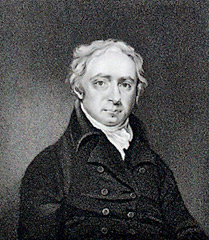
Song of the American Indian
Stranger, stay, nor wish to climb
The heights of yonder hills sublime;
For there strange shapes and spirits dwell,
That oft the murmuring thunders swell,
Of power from the impending steep
To hurl thee headlong to the deep;
But secure with us abide,
By the winding river’s side;
Our gladsome toil, our pleasures share,
And think not of a world of care.
The lonely cayman, where he feeds
Among the green high-bending reeds,
Shall yield thee pastime; thy keen dart
Through his bright scales shall pierce his heart.
Home returning from our toils,
Thou shalt bear the tiger’s spoils;
And we will sing our loudest strain
O’er the forest-tyrant slain!
Sometimes thou shalt pause to hear
The beauteous cardinal sing clear;
Where hoary oaks, by time decayed,
Nod in the deep wood’s pathless glade;
And the sun, with bursting ray,
Quivers on the branches gray.
By the river’s craggy banks,
O’erhung with stately cypress-ranks,
Where the bush-bee hums his song,
Thy trim canoe shall glance along.
To-night at least, in this retreat,
Stranger! rest thy wandering feet;
To-morrow, with unerring bow,
To the deep thickets fearless we will go.
William Lisle Bowles
(1762 – 1850)
Song of the American Indian
• fleursdumal.nl magazine
More in: # Classic Poetry Archive, #Archive Native American Library, Archive A-B, Archive A-B, Cowboys and Indians, Racism, Western Fiction
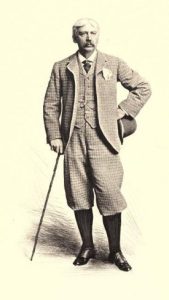
Chiquita
BEAUTIFUL! Sir, you may say so. Thar isn’t her match in the county;
Is thar, old gal,—Chiquita, my darling, my beauty?
Feel of that neck, sir,—thar ‘s velvet! Whoa! Steady,—ah, will you, you vixen!
Whoa! I say. Jack, trot her out; let the gentleman look at her paces.
Morgan!—She ain’t nothin’ else, and I ‘ve got the papers to prove it.
Sired by Chippewa Chief, and twelve hundred dollars won’t buy her.
Briggs of Tuolumne owned her. Did you know Briggs of Tuolumne?
Busted hisself in White Pine, and blew out his brains down in ‘Frisco?
Hedn’t no savey, hed Briggs. Thar, Jack! that ‘ll do, quit that foolin’!
Nothin’ to what she kin do, when she ‘s got her work cut out before her.
Hosses is hosses, you know, and likewise, too, jockeys is jockeys;
And ‘t ain’t ev’ry man as can ride as knows what a hoss has got in him.
Know the old ford on the Fork, that nearly got Flanigan’s leaders?
Nasty in daylight, you bet, and a mighty rough ford in low water!
Well, it ain’t six weeks ago that me and the Jedge and his nevey
Struck for that ford in the night, in the rain, and the water all around us;
Up to our flanks in the gulch, and Rattlesnake Creek just a bilin’,
Not a plank left in the dam, and nary a bridge on the river.
I had the gray, and the Jedge had his roan, and his nevey, Chiquita;
And after us trundled the rocks jest loosed from top of the cañon.
Lickity, lickity, switch, we came to the ford, and Chiquita
Buckled right down to her work, and, afore I could yell to her rider,
Took water jest at the ford; and there was the Jedge and me standing,
And twelve hundred dollars of hoss-flesh afloat, and a-driftin’ to thunder!
Would ye b’lieve it? That night, that hoss, that ar’ filly, Chiquita,
Walked herself into her stall, and stood there, all quiet and dripping:
Clean as a beaver or rat, with nary a buckle of harness,
Just as she swam the Fork,—that hoss, that ar’ filly, Chiquita.
That ‘s what I call a hoss! and—What did you say?—Oh! the nevey?
Drownded, I reckon,—leastways, he never kem back to deny it.
Ye see, the derned fool had no seat, ye could n’t have made him a rider;
And then, ye know, boys will be boys, and hosses—well, hosses is hosses!
1872
Bret Harte
(1836-1902)
Chiquita
• fleursdumal.nl magazine
More in: # Classic Poetry Archive, Archive G-H, Archive G-H, Bret Harte, Western Fiction
In a landscape scarred by conflict, two women begin a quest for a lost child and a lost world of peace.
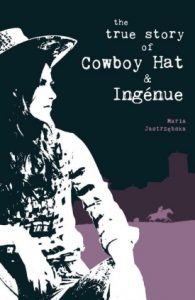 Bound together by love and acceptance, their story and path interweave with fellow outcasts — people like the ever-suave Dame Blanche, Sister Asunta, martial artist and magician, Master Wu Wu, and the lost soul, Tulip — but whether peace is simply the end of war or something deeper is something they must discover for themselves.
Bound together by love and acceptance, their story and path interweave with fellow outcasts — people like the ever-suave Dame Blanche, Sister Asunta, martial artist and magician, Master Wu Wu, and the lost soul, Tulip — but whether peace is simply the end of war or something deeper is something they must discover for themselves.
A haunting tale, told in a series of visionary prose poems, The True Story of Cowboy Hat & Ingénue interweaves memory and yearning to ask questions that reflect on our past and, disturbingly, on our futures.
Maria Jastrzębska is a Polish-born poet, editor and translator. Her most recent collection was At The Library of Memories (Waterloo Press 2013) and her selected poems, The Cedars of Walpole Park, have been translated into Polish by Anna Błasiak, Paweł Gawroński and Wioletta Grzegorzewska and published bilingually (Stowarzyszenie ŻŻwych Poetów 2015). Old Knives is a selection of her work translated into Romanian by Lidia Vianu and published bilingually by Integral Contemporary Literature Press (2017). She was co-editor with Anthony Luvera of Queer in Brighton (New Writing South 2014). She co-translated Iztok Osojnik’s selected poems Elsewhere with Ana Jelnikar and her translations of Justyna Bargielska’s selected poems The Great Plan B are published by Smokestack Press (2017). Her work features in the British Library poetry and translation project Poetry Between Two Worlds. Dementia Diaries, her literary drama, toured nationally with Lewes Live Lit in 2011. Her poems have been much anthologized from The Virago Book of Wicked Verse (1992) to This Line Is Not For Turning — An Anthology of Contemporary British Prose Poetry (Cinnamon Press 2011) and Hallelujah for 50ft Women (Bloodaxe 2015). Maria lives in Brighton and you can discover more about her work on her website. (https://mariajastrzebska.wordpress.com/)
The True Story of Cowboy Hat & Ingénue
Maria Jastrzębska
Prose-poetry
Language: English
Publisher: Cinnamon Press
2018
Paperback
70 pages
ISBN-10: 1911540033
ISBN-13: 978-1911540038
Price: 14,27 euro
• fleursdumal.nl magazine
More in: #Editors Choice Archiv, - Book News, - Bookstores, Archive I-J, Archive I-J, Cowboy Poetry
A man returns home to the hearts of the great spaces.
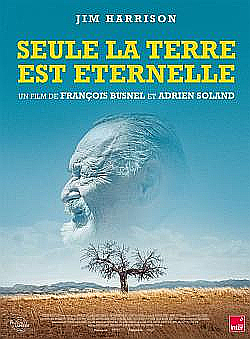 He recounts his life, which he burned by both ends and which reveals another History of America. Also, through his own history and his characters, he tells his relationship to the world.
He recounts his life, which he burned by both ends and which reveals another History of America. Also, through his own history and his characters, he tells his relationship to the world.
Through this spiritual and joyful testament, from Livingston MO to Patagonia AZ, he invites you to go back to basics and live in harmony with Nature.
This man is one of the greatest American writers and poets. His name is Jim Harrison.
Jim Harrison was born in 1937 in Grayling, Michigan, USA. He was a writer, poet and producer, known for Wolf (1994), Revenge (1990) and Legends of the Fall (1994). He died in 2016 in Patagonia, Arizona, USA.
‘Seule la terre est éternelle’
Documentary 2019
1h 56m
Directors: François Busnel & Adrien Soland
Writer: François Busnel
Stars: Jim Harrison, Louise Erdrich, Jim Fergus
François Busnel is a writer and producer, known for Seule la terre est éternelle (2019), Les Grands Mythes (2014) and Mythologies (2001).
• fleursdumal.nl magazine
More in: Archive G-H, Archive G-H, AUDIO, CINEMA, RADIO & TV, Harrison, Jim, Jim Harrison, Western Fiction, Western Non-Fiction
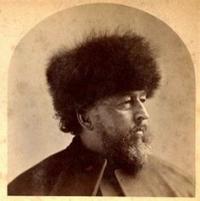
A Funeral Thought
I
When the stern Genius, to whose hollow tramp
Echo the startled chambers of the soul.
Waves his inverted torch o’er that pale camp
Where the archangel’s final trumpets roll,
I would not meet him in the chamber dim,
Hushed, and pervaded with a name-less fear,
When the breath flutters and the senses swim,
And the dread hour is near.
II
Though Love’s dear arms might clasp me fondly then
As if to keep the Summoner at bay,
And woman’s woe and the calm grief of men
Hallow at last the chill, unbreathing clay —
These are Earth’s fetters, and the soul would shrink,
Thus bound, from Darkness and the dread Unknown,
Stretching its arms from Death’s eternal brink,
Which it must dare alone.
III
But in the awful silence of the sky,
Upon some mountain summit, yet untrod,
Through the blue ether would I climb, to die
Afar from mortals and alone with God!
To the pure keeping of the stainless air
Would I resign my faint and fluttering breath,
And with the rapture of an answered prayer
Receive the kiss of Death.
IV
Then to the elements my frame would turn;
No worms should riot on my coffined clay,
But the cold limbs, from that sepulchral urn,
In the slow storms of ages waste away.
Loud winds and thunder’s diapason high
Should be my requiem through the coming time,
And the white summit, fading in the sky,
My monument sublime.
Bayard Taylor
(1825 – 1878)
A Funeral Thought
• fleursdumal.nl magazine
More in: Archive S-T, Archive S-T, Het graf van de lezer, Tales of Mystery & Imagination, Western Fiction

Legend of Old California
High on the summit,
Over the waters,
Fronting the sunset
Lingered the maid;
Below, through the flashing
Of blue billows dashing,
Glided the shallop
Storms had delayed I
Ere the white pebbles
On the keel grated,
Leaped the young boatman
Shoreward amain,
And in the blessing
Of love’s quick caressing,
Soon were forgotten
Peril and pain.
Bayard Taylor
(1825 – 1878)
Legend of Old California
fleursdumal.nl magazine
More in: Archive S-T, Archive S-T, Western Fiction

Ave Maria
Es will das Licht des Tages scheiden;
Nun bricht die stille Nacht herein.
Ach, könnte doch des Herzens Leiden
So, wie der Tag vergangen sein!
Ich leg’ mein Flehen dir zu Füßen;
O, trag’s empor zu Gottes Thron,
Und laß, Madonna, laß dich grüßen
Mit des Gebetes frommem Ton:
Ave, ave Maria!
Es will das Licht des Glaubens scheiden;
Nun bricht des Zweifels Nacht herein.
Das Gottvertrau’n der Jugendzeiten,
Es soll mir abgestohlen sein.
Erhalt’, Madonna, mir im Alter
Der Kindheit frohe Zuversicht;
Schütz’ meine Harfe, meinen Psalter;
Du bist mein Heil, du bist mein Licht!
Ave, ave Maria!
Es will das Licht des Lebens scheiden;
Nun bricht des Todes Nacht herein.
Die Seele will die Schwingen breiten;
Es muß, es muß gestorben sein.
Madonna, ach, in deine Hände
Leg’ ich mein letztes, heißes Fleh’n:
Erbitte mir ein gläubig Ende
Und dann ein selig Aufersteh’n!
Ave, ave Maria!
Karl May
(1842-1912)
Ave Maria
• fleursdumal.nl magazine
More in: Archive M-N, Archive M-N, Karl May

The Eagle Hunter
On the mighty summit, heaten
By the wintry sleet, I wander,
For I seek the monarch eagle
In his eyrie of the rock;
And I shout in fierce exulting,
When his gray wing on the darkness
Of the cloud above me flashes,
Wheeling downward to the shock!
Nearer, with his keen eye burning,
And his hungry beak extended —
With a shriek of anger swooping
Comes the storm-defying bird :
Yet as steady and unswerving,
Upward flies the fatal arrow,
And his death-cry on the sweeping
Of the sounding winds is heard!
From his wing I rob the plumage,
And it crowns me like a chieftain.
And his talons stud my girdle
Like the scales of olden mail;
Never wears the wild ranchero
Such a trophy on the vega,
Or the fiery-eyed Navajo,
In the Colorado’s vale!
Bayard Taylor
(1825 – 1878)
The Eagle Hunter
fleursdumal.nl magazine
More in: Archive S-T, Archive S-T, Department of Birds of Prey, Western Fiction
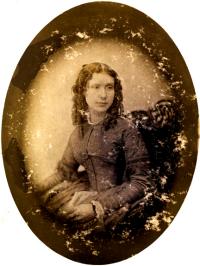
Madeline. A Legend Of The Mohawk
Where the waters of the Mohawk
Through a quiet valley glide,
From the brown church to her dwelling
She that morning passed a bride.
In the mild light of October
Beautiful the forest stood,
As the temple on Mount Zion
When God filled its solitude.
Very quietly the red leaves,
On the languid zephyr’s breath,
Fluttered to the mossy hillocks
Where their sisters slept in death:
And the white mist of the Autumn
Hung o’er mountain-top and dale,
Soft and filmy, as the foldings
Of the passing bridal veil.
From the field of Saratoga
At the last night’s eventide,
Rode the groom, – a gallant soldier
Flushed with victory and pride,
Seeking, as a priceless guerdon
From the dark-eyed Madeline,
Leave to lead her to the altar
When the morrow’s sun should shine.
All the children of the village,
Decked with garland’s white and red,
All the young men and the maidens,
Had been forth to see her wed;
And the aged people, seated
In the doorways ‘neath the vine,
Thought of their own youth and blessed her,
As she left the house divine.
Pale she was, but very lovely,
With a brow so calm and fair,
When she passed, the benediction
Seemed still falling on the air.
Strangers whispered they had never
Seen who could with her compare,
And the maidens looked with envy
On her wealth of raven hair.
In the glen beside the river
In the shadow of the wood,
With wide-open doors for welcome
Gamble-roofed the cottage stood;
Where the festal board was waiting,
For the bridal guests prepared,
Laden with a feast, the humblest
In the little village shared.
Every hour was winged with gladness
While the sun went down the west,
Till the chiming of the church-bell
Told to all the hour for rest:
Then the merry guests departed,
Some a camp’s rude couch to bide,
Some to bright homes, – each invoking
Blessings on the gentle bride.
Tranquilly the morning sunbeam
Over field and hamlet stole,
Wove a glory round each red leaf,
Then effaced the Frost-king’s scroll:
Eyes responded to its greeting
As a lake’s still waters shine,
Young hearts bounded, – and a gay group
Sought the home of Madeline.
Bird-like voices ‘neath the casement
Chanted in the hazy air,
A sweet orison for wakening, –
Half thanksgiving and half prayer.
But no white hand drew the curtain
From the vine-clad panes before,
No light form, with buoyant footstep,
Hastened to fling wide the door.
Moments numbered hours in passing
‘Mid that silence, till a fear
Of some unseen ill crept slowly
Through the trembling minstrels near,
Then with many a dark foreboding,
They, the threshold hastened o’er,
Paused not where a stain of crimson
Curdled on the oaken floor;
But sought out the bridal chamber.
God in Heaven! could it be
Madeline who knelt before them
In that trance of agony?
Cold, inanimate beside her,
By the ruthless Cow-boys slain
In the night-time whilst defenceless,
He she loved so well was lain;
O’er her bridal dress were scattered,
Stains of fearful, fearful dye,
And the soul’s light beamed no longer
From her tearless, vacant eye.
Round her slight form hung the tresses
Braided oft with pride and care,
Silvered by that night of madness
With its anguish and despair.
She lived on to see the roses
Of another summer wane,
But the light of reason never
Shone in her sweet eyes again.
Once where blue and sparkling waters
Through a quiet valley run,
Fertilizing field and garden,
Wandered I at set of sun;
Twilight as a silver shadow
O’er the softened landscape lay,
When amid a straggling village
Paused I in my rambling way.
Plain and brown the church before me
In the little graveyard stood,
And the laborer’s axe resounded
Faintly, from the neighboring wood.
Through the low, half-open wicket
Deeply worn, a pathway led:
Silently I paced its windings
Till I stood among the dead.
Passing by the grave memorials
Of departed worth and fame,
Long I paused before a record
That no pomp of words could claim:
Simple was the slab and lowly,
Shaded by a fragrant vine,
And the single name recorded,
Plainly writ, was “Madeline.”
But beneath it through the clusters
Of the jessamine I read,
“Spes,” engraved in bolder letters, –
This was all the marble said.
Mary Gardiner Horsford
(1824-1855)
Madeline. A Legend Of The Mohawk
•fleursdumal.nl magazine
More in: Archive G-H, Archive G-H, CLASSIC POETRY, Western Fiction
 During the Revolutionary war, a young American lady was murdered, while dressed in her bridal robe, by a party of Indians, sent by her betrothed to conduct her to the village where he was encamped.
During the Revolutionary war, a young American lady was murdered, while dressed in her bridal robe, by a party of Indians, sent by her betrothed to conduct her to the village where he was encamped.
After the deed was done, they carried her long hair to her lover, who, urged by a frantic despair, hurried to the spot to assure himself of the truth of the tale, and shortly after threw himself, in battle, on the swords of his countrymen.
After this event, the Indians were never successful in their warfare, the spectre of their victim presenting itself continually between them and the enemy.
The Phantom Bride. – Indian Legends
The worn bird of Freedom had furled o’er our land
The shattered wings, pierced by the despot’s rude hand,
And stout hearts were vowing, ‘mid havoc and strife,
To Liberty, fortune, fame, honor, and life.
The red light of Morning had scarcely betrayed
The sweet summer blossoms that slept in the glade,
When a horseman rode forth from his camp in the wood,
And paused where a cottage in loneliness stood.
The ruthless marauder preceded him there,
For the green vines were torn from the trellis-work fair,
The flowers in the garden all hoof-trodden lay,
And the rafters were black with the smoke of the fray:
But the desolate building he heeded not long,
Was it echo, the wind, or the notes of a song?
One moment for doubt, and he stood by the side
Of the dark-eyed young maiden, his long-promised bride.
Few and short were their words, for the camp of the foe
Was but severed from them, by a stream’s narrow flow,
And her fair cheek grew pale at the forest bird’s start,
But he said, as he mounted his steed to depart,
“Nay, fear not, but trust to the chief for thy guide,
And the light of the morrow shall see thee my bride.”
Why faltered the words ere the sentence was o’er?
Why trembled each heart like the surf on the shore?
In a marvellous legend of old it is said,
That the cross where the Holy One suffered and bled
Was built of the aspen, whose pale silver leaf,
Has ever more quivered with horror and grief;
And e’er since the hour, when thy pinion of light
Was sullied in Eden, and doomed, through a night
Of Sin and of Sorrow, to struggle above,
Hast thou been a trembler, O beautiful Love!
‘T was the deep hush of midnight; the stars from the sky
Looked down with the glance of a seraph’s bright eye,
When it cleaveth in vision from Deity’s shrine
Through infinite space and creation divine,
As the maiden came forth for her bridal arrayed,
And was led by the red men through forest and shade,
Till they paused where a fountain gushed clear in its play,
And the tall pines rose dark and sublime o’er their way.
Alas for the visions that, joyous and pure,
Wove a vista of light through the Future’s obscure!
Contention waxed fierce ‘neath the evergreen boughs,
And the braves of the chieftain were false to his vows;
In vain knelt the Pale-Face to merciless wrath,
The tomahawk gleamed on her desolate path,
One prayer for her lover, one look towards the sky,
And the dark hand of Death closed the love-speaking eye.
They covered with dry leaves the cold corpse and fair,
And bore the long tresses of soft, golden hair,
In silence and fear, through the dense forest wide,
To the home that the lover had made for his bride.
He knew by their waving those tresses of gold,
Now damp with the life-blood that darkened each fold,
And, mounting his steed, pausing never for breath
Sought the spot where the huge trees stood sentries of Death;
Tore wildly the leaves from the loved form away,
And kissed the pale lips of inanimate clay.
But hark! through the green wood what sounded afar,
‘T was the trumpet’s loud peal–the alarum of war!
Again on his charger, through forest, o’er plain,
The soldier rode swift to his ranks ‘mid the slain:
They faltered, they wavered, half turning to fly
As their leader dashed frantic and fearlessly by,
The damp turf grew crimson wherever he trod,
Where his sword was uplifted a soul went to God.
But that brave arm alone might not conquer in strife,
The madness of grief was conflicting with Life;
His steed fell beneath him, the death-shot whizzed by,
And he rushed on the swords of the victors to die.
‘Neath the murmuring pine trees they laid side by side,
The gallant young soldier, the fair, murdered bride:
And never again from that traitorous night,
The red man dared stand in the battle’s fierce storm,
For ever before him a phantom of light,
Rose up in the white maiden’s beautiful form;
And when he would rush on the foe from his lair,
Those locks of pale gold floated past on the air.
Mary Gardiner Horsford
(1824-1855)
The Phantom Bride. – Indian Legends
• fleursdumal.nl magazine
More in: Archive G-H, Archive G-H, CLASSIC POETRY, Western Fiction
Going Down Grand, the first full-length anthology of Grand Canyon poetry, gathers the voices of cowboys, explorers, river-runners, hikers, artists, geologists, rangers, and others whose words bear witness to this complex and magnificent place.
 For readers on the river, the trails, the rim, or beyond, the poems on these pages will make fine canyon company.
For readers on the river, the trails, the rim, or beyond, the poems on these pages will make fine canyon company.
GOING DOWN GRAND, the first full length anthology of Grand Canyon poems, gathers the voices and thoughts of explorers, cowboys, river-runners, hikers, artists, geologists, rangers, and others whose words reveal and bear witness to this complex and magnificent place. For readers on the river, the trails, the rim, or beyond, the poems on these pages will make fine canyon company.
Co-editor Rick Kempa has been hiking in and writing about the Grand Canyon since 1974. He is also editor of the anthology ON FOOT: Grand Canyon Backpacking Stories (Vishnu Temple Press, 2014) and has authored two books of poems, Keeping the Quiet and Ten Thousand Voices.
Rick Kempa (M.F.A. U of Arizona) teaches writing and philosophy at Western Wyoming College. His work has appeared in Puerto del Sol, High Plains Literary Review, Teaching English in the Two-Year College and Tumblewords: Writers Reading the West (U of Nevada P, 1995).
Going Down Grand: Poems from the Canyon
Edited by Peter Anderson & Rick Kempa
2015
Publisher: Lithic Press
Product Number:9780988384651
ISBN0988384655
Binding: Paperback
Pages:148
Price: $ 17.00
# new books
Going Down Grand: Poems from the Canyon
Edited by Peter Anderson & Rick Kempa
• fleursdumal.nl magazine
More in: #More Poetry Archives, - Book News, Archive K-L, Cowboy Poetry, Natural history, Western Fiction, Western Non-Fiction
Thank you for reading Fleurs du Mal - magazine for art & literature